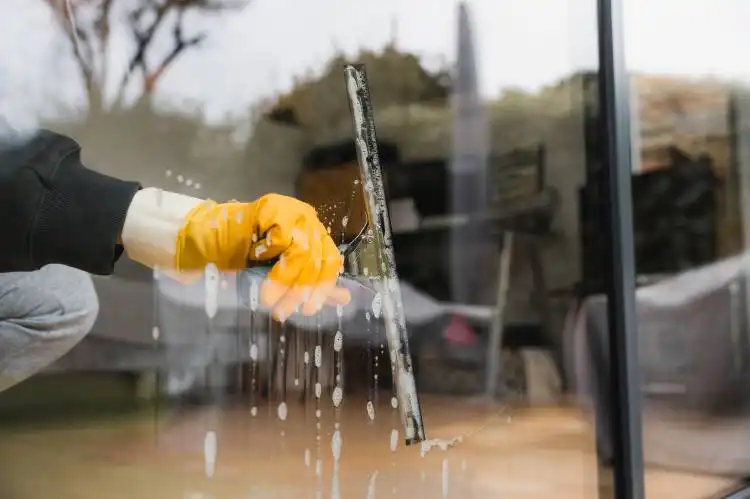Start a Home Inspection Business
| Updated


Discover Your Perfect Domain
Unlock the door to your online success with our hand-picked selection of premium domain names. Whether you're starting a new venture or rebranding an existing one, the right domain can set the tone for your digital presence. Browse through our curated list, each with its unique potential to enhance your brand's visibility and credibility.
HOME INSPECTION MINI BUSINESS PLAN
This a quick reality check to help you identify the strengths and weaknesses of your business concept before you dive in.
Expected Percent Margin:
- Gross Margin: 50-60%
- Net Profit Margin: 30-40%
Earnings Expectations:
- Daily Earnings: $250 - $350 (based on 1-2 inspections per day at an average rate of $250 per inspection)
- Weekly Earnings: $1,250 - $1,750 (based on 1-2 inspections per business day)
- Monthly Earnings: $5,000 - $7,000 (based on 20-22 working days)
- Annual Earnings: $60,000 - $84,000 (based on 240-264 working days)
Actions to Hit Those Numbers:
Licensing and Certification:
- Initial Training and Licensing: Successfully complete an accredited home inspector training course and acquire a license (if required in your state).
Marketing and Customer Acquisition:
- Website and SEO: Establish a professional website and apply SEO strategies to attract potential clients.
- Local Networking: Join local real estate associations and network with real estate agencies.
Service Excellence:
- Quality Assurance: Ensure thorough and accurate inspections to build a reputation for reliability.
- Customer Experience: Offer excellent customer service to encourage word-of-mouth referrals.
Cost Control:
- Equipment: Invest in high-quality inspection tools that will last longer and reduce replacement costs.
- Insurance: Secure appropriate insurance for potential liabilities.
Business Operations:
- Operations: Manage your scheduling to allow for 1-2 inspections per day.
- Continuing Education: Stay updated on industry trends and procedures to maintain your competitive edge.
These figures are approximations and can vary depending on location, competition, market demand, and your specific business model. Always consult a business advisor or accountant for personalized advice.
NOT WHAT YOU HAD IN MIND? Here are more ideas



Browse ALL Construction & Real Estate Business Ideas
Grab Your Business Website Name
Before you get caught up in the whirlwind of setting up your business, invest in a domain name. It's a small but significant step that lays the foundation for your brand and makes it easier for customers to find and trust you. Just like you wouldn't build a house without securing the land first, don't build a business without securing your domain name.
"Why? Can't that wait?" Here's why it shouldn't
Step 1: Determine if Home Inspection Business is Right for You
Breakdown of Startup Expenses
Before starting a home inspection business, it is important to understand the costs associated with starting the business. This includes the cost of the necessary equipment, such as a ladder, a flashlight, a moisture meter, and other tools. Additionally, you will need to consider the cost of insurance, licensing, and any other fees associated with starting a business. It is also important to consider the cost of marketing, such as creating a website and advertising your services. Finally, you should consider any other costs associated with starting a business, such as legal fees or accounting fees.
Breakdown of Ongoing Expenses
Once you have started your home inspection business, there are ongoing expenses that you will need to consider. These include the cost of maintaining your equipment and tools, as well as the cost of insurance and licensing. Additionally, you will need to consider the cost of marketing and advertising your services, as well as any other fees associated with running a business.
Examples of Ways to Make Money
There are a variety of ways to make money as a home inspector. You can offer your services to individuals who are looking to buy or sell a home, as well as to real estate agents and brokers. Additionally, you can offer your services to property management companies, landlords, and other businesses. You can also offer additional services, such as radon testing or mold inspections, to increase your revenue. Finally, you can offer classes or seminars to teach others about home inspection and home maintenance.
Step 2: Name Your Home Inspection Business
When it comes to naming your home inspection business, it is important to choose a name that is memorable, unique, and reflects the services you provide. Consider using a combination of words that evoke the idea of home inspection, such as “Home Check” or “Home Assurance.” Additionally, you may want to include your name or the name of your city in the title to make it more personal. If you’re having trouble coming up with a name, try brainstorming with friends and family, or look for inspiration from other businesses in the same field. Once you have a few ideas, make sure to do a quick search online to make sure the name isn’t already taken.
Register Your Business
Once you have chosen a name for your business, you will need to register it with the state. This process will vary depending on the state you live in, but generally, you will need to fill out an application and pay a fee. You may also need to obtain a business license or permit. Additionally, you will need to decide if you want to register your business as a sole proprietorship, partnership, or corporation. This decision will depend on the size and scope of your business, so it is important to do your research and consult with a lawyer or accountant before making a decision.
Step 3: Obtain Licensing and Certification
In order to start a home inspection business, it is important to obtain the necessary licensing and certification. Depending on the state, there may be different requirements for licensing and certification. Generally, these requirements include completing a certain number of hours of training, passing an exam, and having a certain amount of experience in the field. It is important to research the specific requirements for the state in which the business will be operating.
Cost of Licensing and Certification
The cost of obtaining the necessary licensing and certification for a home inspection business can vary depending on the state. Generally, the cost includes the cost of the training, the cost of the exam, and any other fees associated with the licensing and certification process. It is important to research the cost of the licensing and certification process in the state in which the business will be operating.
Benefits of Licensing and Certification
Obtaining the necessary licensing and certification for a home inspection business is important for a number of reasons. It helps to ensure that the business is operating legally and that the home inspector is qualified to do the job. It also helps to ensure that the home inspector is up-to-date on the latest regulations and standards in the field. Furthermore, it helps to give potential customers confidence in the services that the business provides.
Resources for Licensing and Certification
There are a number of resources available to help with the licensing and certification process for a home inspection business. These resources include websites, books, and courses that provide information on the requirements, the cost, and the benefits of obtaining the necessary licensing and certification. Additionally, there are organizations that provide support and guidance throughout the process. It is important to research the available resources and to take advantage of them in order to ensure that the licensing and certification process is completed successfully.
Step 4: Create a Business Plan
Creating a business plan is an important step in starting a home inspection business. It should include a mission statement, a description of the services offered, a market analysis, a description of the target market, a description of the competition, a marketing plan, a financial plan, and an operational plan.
The mission statement should be a concise description of the purpose of the business and the goals of the business. It should also include the values and principles that the business will adhere to.
The description of services offered should include the types of inspections that will be performed, the fees for each inspection, and any additional services that will be offered.
The market analysis should include an overview of the home inspection industry, a description of the current trends in the industry, and an analysis of the potential customer base.
The description of the target market should include demographic information about the potential customers, such as age, income level, and geographic location.
The description of the competition should include an overview of the other home inspection businesses in the area, their services, and their pricing.
The marketing plan should include a description of the methods that will be used to promote the business, such as advertising, public relations, and social media.
The financial plan should include a breakdown of the startup costs, ongoing expenses, and projected profits. It should also include a plan for financing the business.
The operational plan should include a description of the day-to-day operations of the business, such as scheduling inspections, billing customers, and managing employees. It should also include a plan for managing customer complaints and resolving disputes.
Step 5: Secure Financing
Securing financing is an important step in starting a home inspection business. There are several sources of financing available to entrepreneurs. These include traditional bank loans, Small Business Administration (SBA) loans, and venture capital. Bank loans are typically the most common form of financing for small businesses. They are usually the most cost-effective option, as banks typically offer lower interest rates than other sources. SBA loans are designed to help small businesses access capital. They are typically more expensive than bank loans, but can be easier to qualify for. Venture capital is another option for entrepreneurs. Venture capitalists typically invest in businesses that have a high potential for growth. They usually provide capital in exchange for a stake in the business.
Cost of Financing
The cost of financing will vary depending on the source. Bank loans typically have the lowest interest rates, but may require collateral. SBA loans may have higher interest rates, but may be easier to qualify for. Venture capital is typically the most expensive form of financing, but can provide the most capital. It is important to research all of the available options and compare the costs before making a decision.
Tips for Securing Financing
When applying for financing, it is important to have a business plan in place. A business plan should include a detailed description of the business, a financial plan, and a marketing plan. It is also important to have a good credit score and a solid track record of managing finances. Having a good relationship with a local bank can also be beneficial. Finally, it is important to shop around and compare offers from different lenders.
Step 6: Purchase Equipment
When starting a home inspection business, there are certain pieces of equipment that are necessary for the job. These include a ladder, flashlight, digital camera, moisture meter, and thermometer. Additionally, it is important to have a reliable vehicle to transport all of the equipment to the job site.
Where to Purchase
When purchasing the necessary equipment, it is important to shop around to find the best deals. Home inspection equipment can be purchased online, from specialty stores, or even from other home inspectors who are no longer in business. Additionally, it is important to research the quality of the equipment before making a purchase.
Costs
The cost of the equipment will vary depending on the type and quality of the items purchased. Generally, the cost of the equipment will range from a few hundred dollars to several thousand dollars. Additionally, it is important to factor in the cost of any necessary repairs or replacements.
Insurance
It is important to purchase insurance for the equipment in case of theft, damage, or loss. Additionally, it is important to check with the local government to ensure that the business is in compliance with any necessary regulations.
Step 7: Market Your Business
The seventh step in starting a home inspection business is to market your business. There are many different ways to market your business, including online, in print, and through word of mouth. Online marketing can include creating a website, using social media, and creating online ads. Print marketing can include creating brochures, flyers, and postcards. Word of mouth is one of the most effective ways to market your business and can include asking for referrals from friends, family, and colleagues, as well as attending networking events.
Tips for Marketing Your Business
When marketing your business, it is important to make sure that your message is clear and concise. You should also make sure that your message is targeted to the right audience. Additionally, it is important to track the results of your marketing efforts to see which methods are working and which are not. Finally, it is important to be consistent in your marketing efforts to ensure that your message is seen by potential customers.
Step 8: Hire Employees
Hiring employees for your home inspection business can be a daunting task. It is important to find individuals who are knowledgeable and experienced in the field of home inspection, as well as those who are reliable and trustworthy. When looking for potential employees, it is important to consider their qualifications, experience, and references. Additionally, it is important to ensure that they are properly licensed and insured. It is also important to make sure that they understand the company's policies and procedures, as well as the expectations of the job. Additionally, it is important to provide the necessary training and support to ensure that employees are able to perform their duties to the best of their ability.
Benefits of Hiring Employees
Hiring employees can be beneficial to your home inspection business in a number of ways. Firstly, having employees can help to spread out the workload and ensure that all tasks are completed in a timely manner. Additionally, having employees can help to ensure that all inspections are completed accurately and efficiently. Furthermore, having employees can help to reduce the risk of liability, as employees are able to take on some of the responsibility for any errors or omissions that may occur during an inspection. Finally, having employees can help to increase the overall efficiency of the business, as employees are able to focus on specific tasks, allowing the business owner to focus on other aspects of the business.
Step 9: Set Up Accounting System
When setting up an accounting system for a home inspection business, there are many options to choose from. Popular accounting software programs include QuickBooks, FreshBooks, and Xero. These programs are designed to help small business owners track income and expenses, create invoices, and manage payroll. Additionally, they can be used to generate financial statements, such as balance sheets and income statements. Other options include Wave, which is a free accounting software, and Sage, which is a more comprehensive accounting program.
Setting Up a Chart of Accounts
After selecting the appropriate accounting software, the next step is to set up a chart of accounts. This is a list of all the accounts that will be used to track the financial transactions of the business. Examples of accounts include accounts receivable, accounts payable, and inventory. Each account should be assigned a unique number to make it easier to track and categorize transactions. Additionally, the chart of accounts should be reviewed and updated regularly to ensure accuracy.
Hiring an Accountant
For those who are not comfortable managing their own finances, hiring an accountant can be a great option. An accountant can help set up the chart of accounts and ensure that all financial transactions are accurately recorded. They can also provide advice on tax planning and other financial matters. Additionally, an accountant can help prepare financial statements and provide guidance on how to best manage the business’s finances.
EXPLORE MORE CATEGORIES
Browse ALL Business Idea Categories
TAKE THE NEXT STEPS







